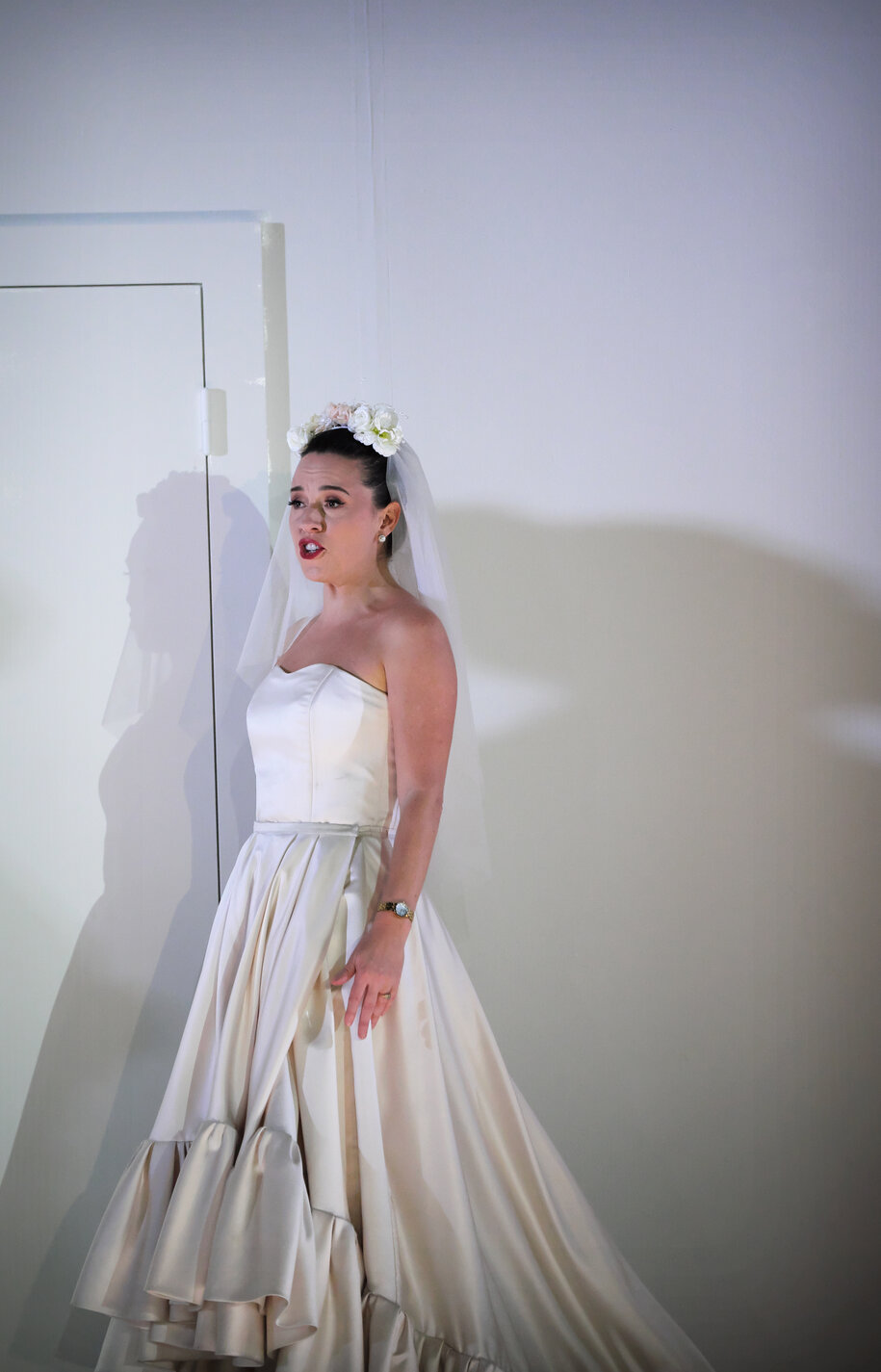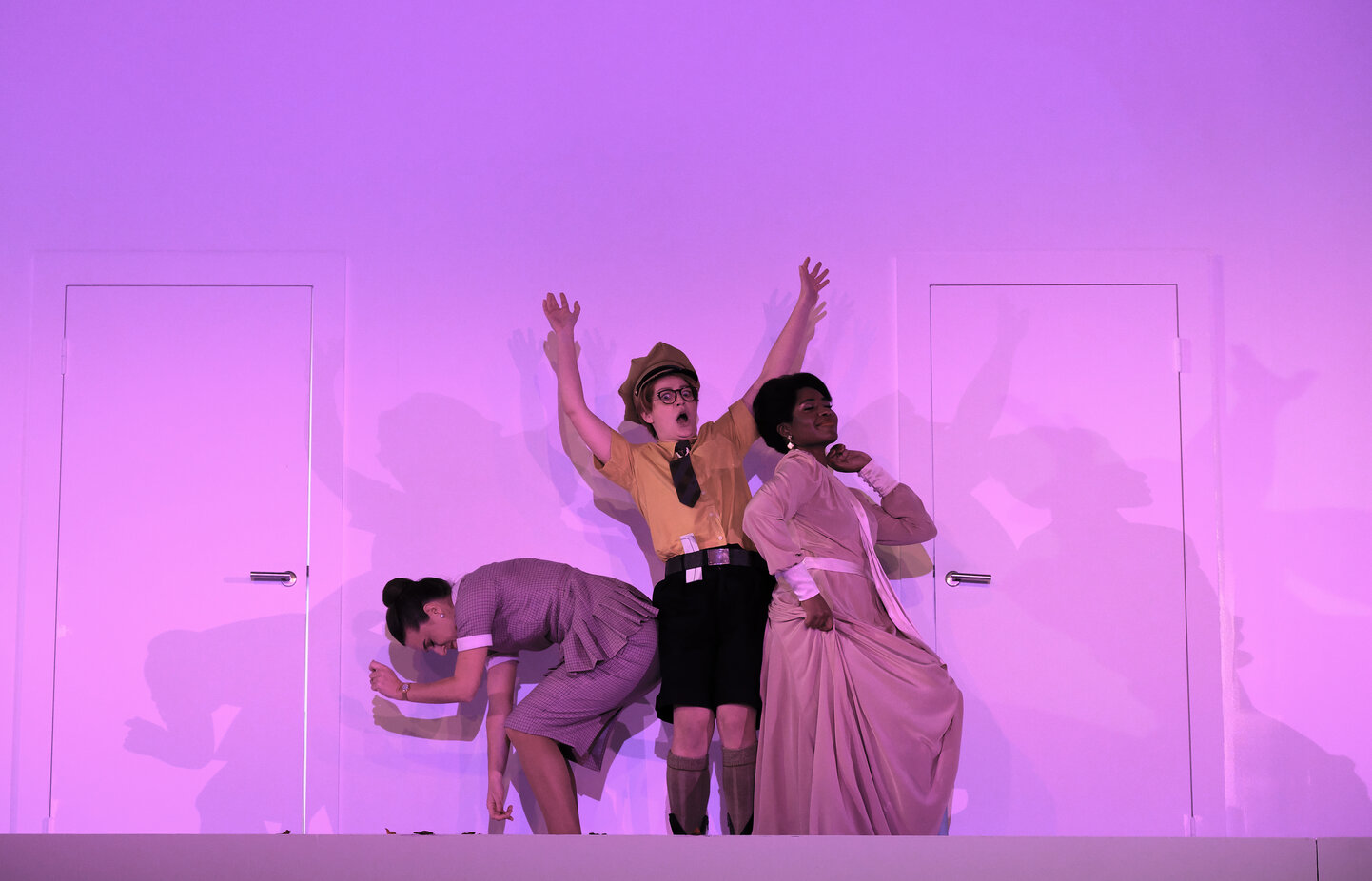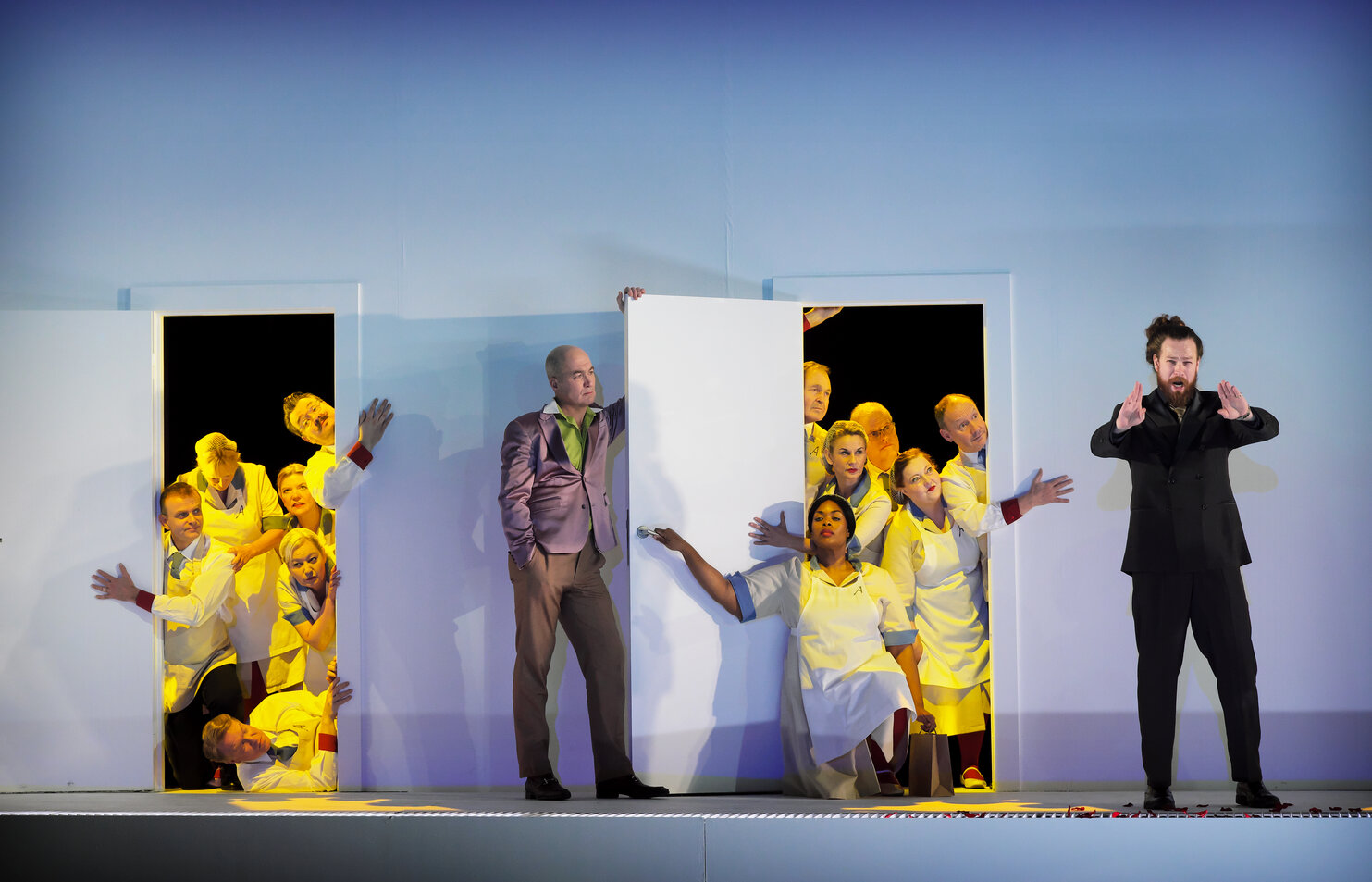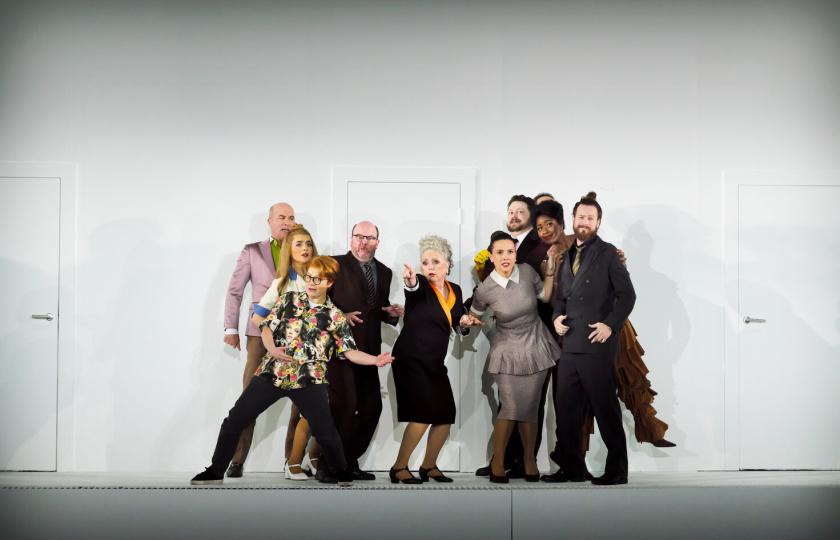Who’s in and who’s not – on the secret, the joke, the relationship, the family, the club? That’s the fulcrum of Joe Hill-Gibbins’ ingeniously simple Figaro for English National Opera. A white box and a row of doors supply the only set to speak of for a production less interested in the entrenched tensions of upstairs-downstairs than the shifting alliances and fragile coalitions of a household in flux. Gender, money, status – even survival – all take their turn as the axis dividing a more than usually eccentric cast of characters in a contemporary staging whose interest – and wit – is all in the interplay.
Premiered in mid-March 2020, Hill-Gibbins’ production had precisely one night to make its mark before West End stages went dark, London emptied out, and Covid trapped us all indefinitely in our own domestic boxes. Returning to the show’s first proper run with that experience still reasonably fresh only amplifies the appeal of its manic, claustrophobic intensity.
 If there’s a through-line to the director’s theatre work it’s a fascination with the uncivilised, with the collapse of social contracts and norms. This Figaro might not play out in a mud-pit (A Midsummer Night’s Dream) or come caked in every bodily fluid and foodstuff imaginable (The Changeling), but it does arrive teetering on the brink of sanity. Characters clutch at walls, tumble and contort in slow-mo, in a world in which even gravity is up for grabs and Mozart’s happy ending arrives bruised and flimsy.
If there’s a through-line to the director’s theatre work it’s a fascination with the uncivilised, with the collapse of social contracts and norms. This Figaro might not play out in a mud-pit (A Midsummer Night’s Dream) or come caked in every bodily fluid and foodstuff imaginable (The Changeling), but it does arrive teetering on the brink of sanity. Characters clutch at walls, tumble and contort in slow-mo, in a world in which even gravity is up for grabs and Mozart’s happy ending arrives bruised and flimsy.
But if Hill-Gibbins stretches reality beyond breaking, aided and abetted by Matthew Richardson’s queasy, neon-tinged lighting, it’s a game that works because of the anchor of Jeremy Sams’ English translation. Properly, blissfully funny, it manages to make one of opera’s most tangled plots not only clear but idiomatic. A comedy of dowries and feudal rights, notaries and ladies’ maids somehow scrubs up fresh, with Susanna herself the very model of a modern opera heroine in soprano Mary Bevan’s deft, expressive hands.
Bevan (pictured above) is the show’s engine – powering us by sheer charisma and impeccable diction through the plot’s bumpier corners, sparring deliciously with Hanna Hipp’s handsy, hormone-crazed Cherubino (whose “Voi che sapete” becomes a pelvis-grinding pop song) and piquant in her rivalry with Rebecca Evans’ Marcellina. David Ireland’s Figaro is a slower burn, outdone for easy laughs by Neal Davies’ G&S-ish Bartolo. But it’s a performance that builds effectively, his gentler start paying dividends in the unexpected ferocity of his Act IV jealousy. Nardus Williams’ Countess (pictured above with Hipp and Bevan) is a class-act, smooth as polished walnut in “Dove sono”, dignified through the directors’ most extreme demands. It’s a shame that Cody Quattlebaum’s Count (pictured below) remains such a cipher, neither vocally nor dramatically in focus. As the rest of the characters scamper off during the orchestra’s final chords leaving him alone in front of that line of closed doors we’re supposed to feel – what? Hill-Gibbins tightens the comic screws expertly but falls short on the emotional release of Act IV, unsure where to put all the tension he's generated.
David Ireland’s Figaro is a slower burn, outdone for easy laughs by Neal Davies’ G&S-ish Bartolo. But it’s a performance that builds effectively, his gentler start paying dividends in the unexpected ferocity of his Act IV jealousy. Nardus Williams’ Countess (pictured above with Hipp and Bevan) is a class-act, smooth as polished walnut in “Dove sono”, dignified through the directors’ most extreme demands. It’s a shame that Cody Quattlebaum’s Count (pictured below) remains such a cipher, neither vocally nor dramatically in focus. As the rest of the characters scamper off during the orchestra’s final chords leaving him alone in front of that line of closed doors we’re supposed to feel – what? Hill-Gibbins tightens the comic screws expertly but falls short on the emotional release of Act IV, unsure where to put all the tension he's generated.  This Figaro isn’t a looker, neither is it big on tenderness. But what it does, it does brilliantly. A first-night crowd, many discovering the plot’s twists and reveals in real-time, laughed proper laughs not opera-funny ones – making a strong a case for opera-in-English. Latvian conductor Ainars Rubikis keeps things moving – not unfailingly sensitive to singers, but drawing real flair from strings and woodwind. This is ENO doing what ENO does best. Long may the company be permitted to continue.
This Figaro isn’t a looker, neither is it big on tenderness. But what it does, it does brilliantly. A first-night crowd, many discovering the plot’s twists and reveals in real-time, laughed proper laughs not opera-funny ones – making a strong a case for opera-in-English. Latvian conductor Ainars Rubikis keeps things moving – not unfailingly sensitive to singers, but drawing real flair from strings and woodwind. This is ENO doing what ENO does best. Long may the company be permitted to continue.














Add comment